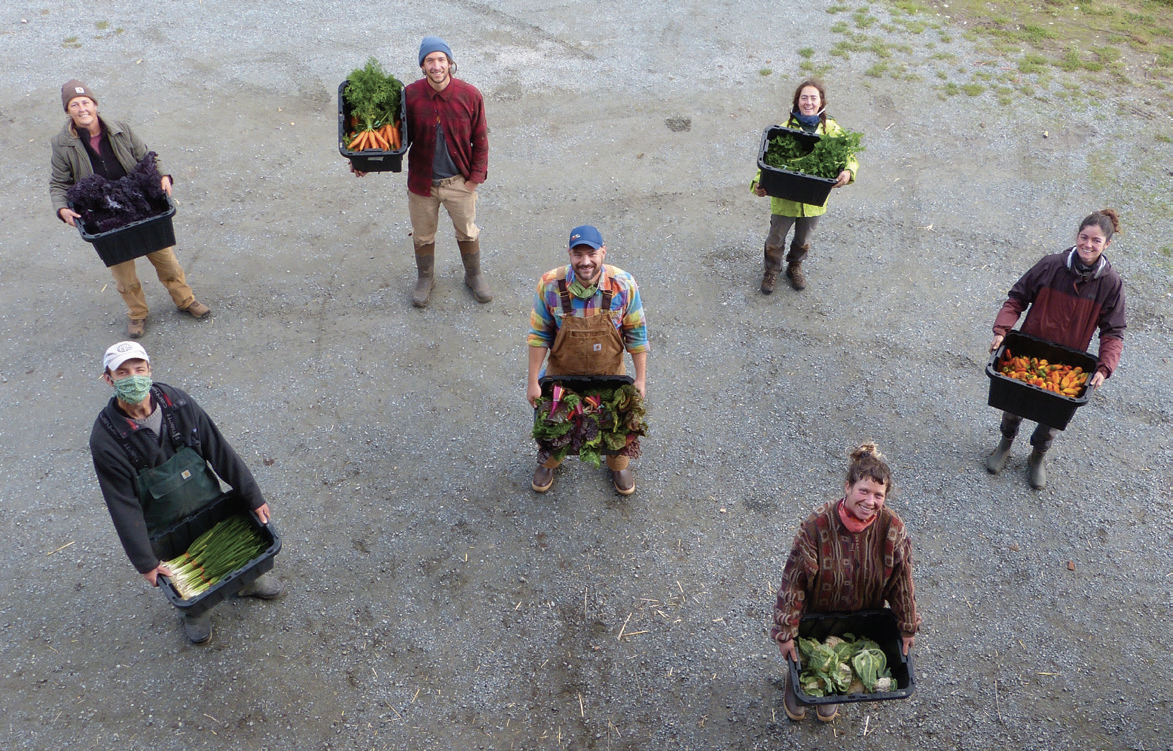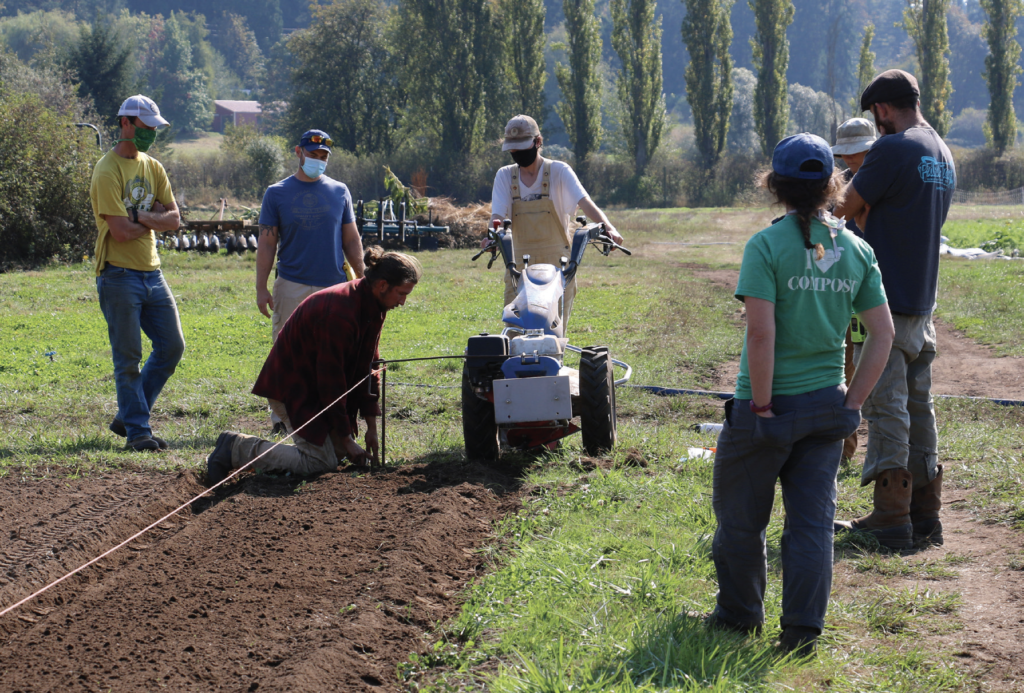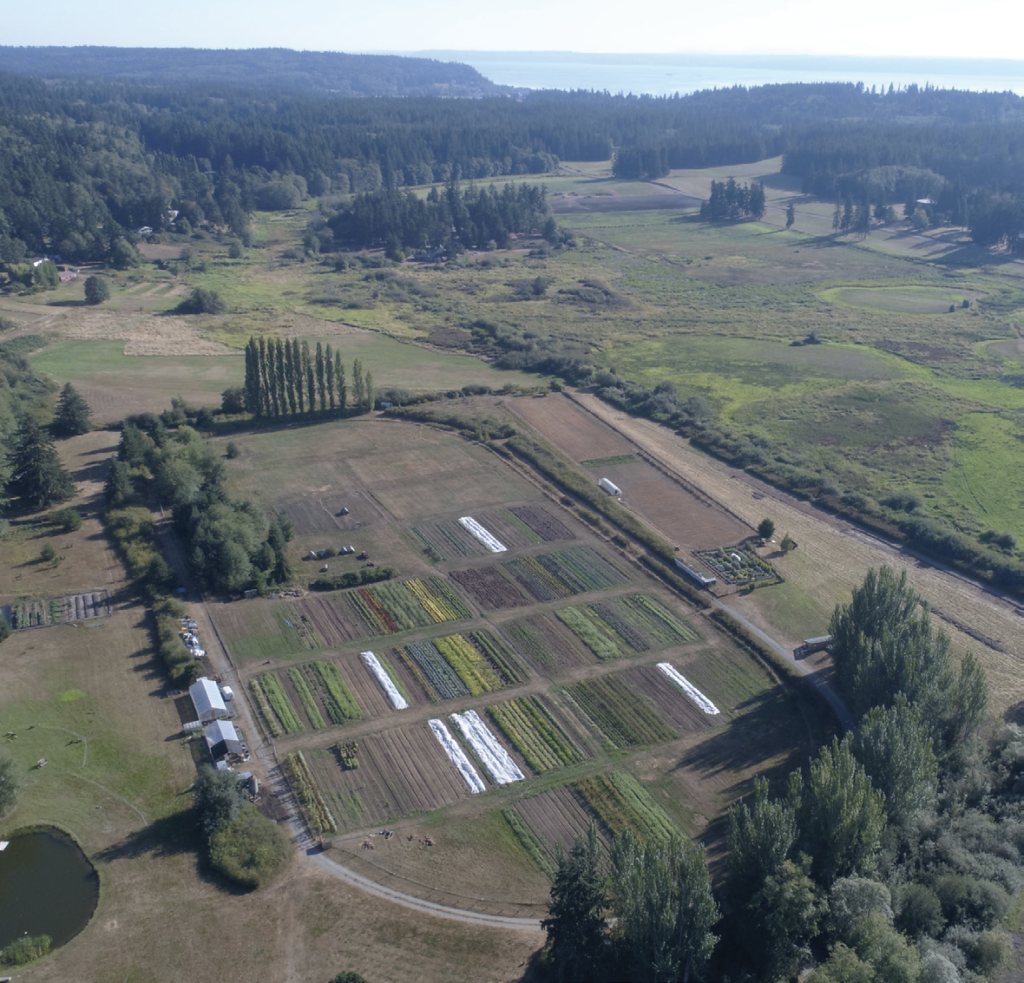
Jun 30, 2021
Leaning into a rapidly changing future at Organic Farm School
For our first 12 years, the Organic Farm School focused almost entirely on core training for new organic farmers. We modeled how to propagate from seed, how to prepare beds, how to transplant, weed and harvest. We taught basic business planning and marketing skills to go right along with variety trialing, seed production and how to successfully navigate the organic certification process.
We moved trainees through our classroom schedule, crop plan and a calendar of field trips to other farms. While class sizes went up and down during those years, depending on a host of external variables, we kept at it and found a comfortable level of success. Our graduates went on to internships, or incubators, or to farms of their own.
But over the past couple of years, we’ve realized that if we are truly committed to being an active player in the realm of regenerative organic agriculture, it’s not enough to just train farmers to grow food, we must also teach them to eat and enjoy what they are growing. We must also engage, eat and learn with our community. And we must work with our community to identify potential landing sites for the new farmers after graduation (internships, incubators or land leases).
We all know that farming at any scale is complex and hard work, and as farmers pour their energy into getting crops to the market, we can sometimes forget that our crops end up in recipes, on plates and in bellies. We are finding that by providing our trainees time in the kitchen, their attention to soil health and plant vigor is intensifying, and their ability to talk with those purchasing our food is becoming more inspirational and educational.
It is in those conversations between growers and eaters that true regenerative culture has the best chance of taking root.
Cultivating a culture that fosters change

Organic growers talk a lot about externalized costs, such as how the industrialized food system is efficient in many ways, yet that efficiency almost willfully hides the negative impacts it generates across the spectrum of natural and human resources. Moving beyond simply acknowledging that, we believe that cultivating a culture of mutual learning among growers and eaters can begin to change it.
Does this mean the Organic Farm School is making chefs out of farm trainees? Absolutely not. We are simply including a kitchen rotation in the mix with other rotations (like irrigation, livestock, tractor, BCS, deliveries, farm manager, wash/pack, etc.). Farmers are already tasked with predicting the weather; using mathematical equations to determine spread rates for compost, fertility and minerals; managing a calendar of bed prep, transplanting, harvesting and deliveries; hiring, training and supervising field staff; identifying pests and diseases; watching market trends, local/state/federal regulations and more. Our goal is simply to instill a strong awareness of how the fruits of their labor, quite literally, go into the bodies of their families, friends and neighbors.
Growing stronger through community

As we work with our trainees, we also work with our community in various ways. We recruit volunteers to help with heavy transplant days. We host “picnic potlucks” and encourage participants to bring dishes that feature locally grown food from our farm or the farms of our peers. We ask our community for help in finding and splitting wood for our wood-fired oven, and then host pizza and veggie roasting gatherings with them. Through such activities, we’re putting these community eaters in close proximity to our trainees. Together, they are becoming advocates for each other.
As organic growers, we are most likely to thrive when we consider healthy soil to be our primary crop. And we are most likely able to do this in a financially sustainable manner when those who purchase the food we grow trust that we are keeping their welfare in mind. What better way to build trust than in the kitchen or at the dinner table?
To round out the mix, we also offer farm tours, a diversity of presentations and workshops for the community as well as local farmers, and a weekly newsletter. We are experimenting with small scale grain production, the integration of livestock and cover crops, and we are developing a “distributed incubator” program to allow graduates to put their business plans in the ground while close enough to us to benefit from mentoring and shared resources.
In other words, we are taking full advantage of the amazing place we get to farm, pursuing our mission: As a learning center, the Organic Farm School trains new farmers to develop and manage small farms focused on ecological, economic, and social regeneration – simultaneously offering opportunities for our community and others to learn about their role in strengthening local/regional food systems.
How to Learn More
We limit our class size to 12 trainees per year, both to ensure ample time with instructors & mentors as well as to make sure the workload feels real. While we won’t officially accept applications for the 2022 training season until August 15, we encourage those interested in applying to read through our website and consider a visit to the Farm during the summer. For those who are not interested in becoming a farmer — but want to learn more about how to better support farmers — we also encourage you to visit!
If we have learned anything through the pandemic, it’s that locally sourced, organic food can fill in the gaps left by the industrial/commodity market, and that strong communities are the best resources for sustainability during a crisis.
We hope you’ll check us out. We’re certainly not perfect, and not the only training program out there – but we are a program that’s leaning into a rapidly changing future with all we’ve got.






